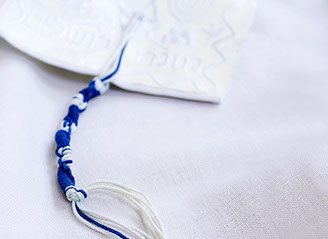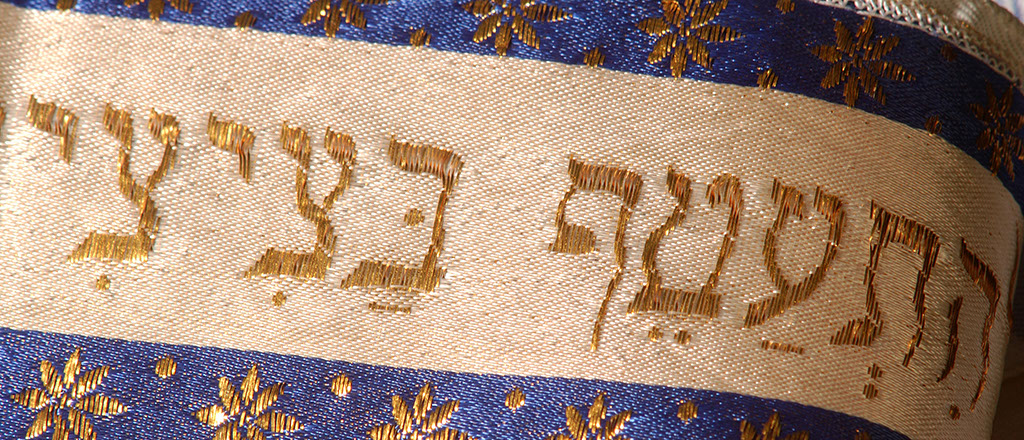On the threshold
of maturity
V
CLICK TO SCROLL DOWN
In this edition of our series of articles on different cultural and religious practices, we take a look at how coming of age, the beginning of recognised adult life, is celebrated by Messianic believers.
The perks of being an adult
In both the traditional and Messianic communities, coming of age is followed by confirmation. This happens at the age of 18 and gives the young adults the right to marry, work and earn a salary.
“To be Messianic is more than being just part of a culture. In the Messianic culture our whole lifestyle is based in our faith. As Messianic communities we try to live according to the Word of God and not to form our own manmade traditions,” Chrisna concludes.
Eish! invites staff to tell us about their cultural customs and practices. Send your contributions to our Eish! journalist, Willie du Plessis, at willie.duplessis@nwu.ac.za.

^
GO BACK


Dr Chrisna Botha-Ravyse says the Bar and Bat Mitzvah is of great importance to Messianic believers. “Children acknowledge openly that they keep the Word of God and live according to what the Torah prescribes. “
V
CLICK TO SCROLL DOWN
Coming of age is an important aspect of every person’s life. For some societies this means more than just a legal convention and is celebrated as a spiritual event ushering in a new era of spiritual consciousness and responsibility. Dr Chrisna Botha-Ravyse, senior lecturer at the School of Economic Sciences on the Vaal Triangle Campus, tells us more about what coming of age means for the Messianic community.
Chrisna says the most significant difference between the Messianic faith and the traditional Jewish faith (which believes that the Messiah must still come), is that Messianic believers accept that the Messias Yeshua (Jesus) has already brought salvation that is available to all who believe in him. “Jesus was a perfect Jew who, along with his disciples, maintained all the Jewish laws.
As Messianic believers, our community celebrates all the religious festivals that God has established. This includes Pesach, Yom Teruha, Yom Kippur and Sukkot among others, as well as keeping the Sabbath.”
Adult life begins at 12 and 13
Chrisna says the religious or spiritual coming of age means that children take responsibility for their own actions and are expected to live by the prescripts of the Torah.
She explains that boys have their Bar Mitzvah at the age of 13 and girls celebrate their Bat Mitzvah at the age of 12. “Bar” means son and “Bat” means daughter while Mitzvah means commandment. The Reformed Traditional Jewish community chooses 13 as the coming of age for girls. “In our Messianic community we make sure that the child is blessed before he or she takes on responsibilities and devotion to Yahweh (God). In the traditional Judaism there are many more traditions, which also differ from the other Jewish groups, including the Orthodox and Reformed groups, among others.”


Celebrating maturity
Chrisna points out that although it differs within the various Jewish groups, coming of age is usually celebrated with a big party or family gathering. The new adults must sometimes prepare speeches and boys also read from the Torah in the Synagogue on the first Sabbath of their 13th birthday.
They also receive gifts – mainly in multiples of 18, as 18 is equivalent to the Hebrew word for life.
“None of this is however written in the Torah; therefore it is a personal matter for each devoted Messianic believer and the kind of celebration depends on where the parent and child are respectively on their spiritual path.”
Traditionally, children have to be able to recite the whole Torah by the age of 13. They must know all the blessings that are spoken during the festivals and Sabbath and must uphold all the Mitzvahs (commandments).
“Messianic children will have already accepted the Messiah before their coming of age and would have been baptised to be born again. It is important to note that following Yeshua is a choice and no child is forced.” Chrisna says if a child decides not to follow the faith, they are still released as adults and the community keeps on praying for them.
V
CLICK TO SCROLL DOWN




